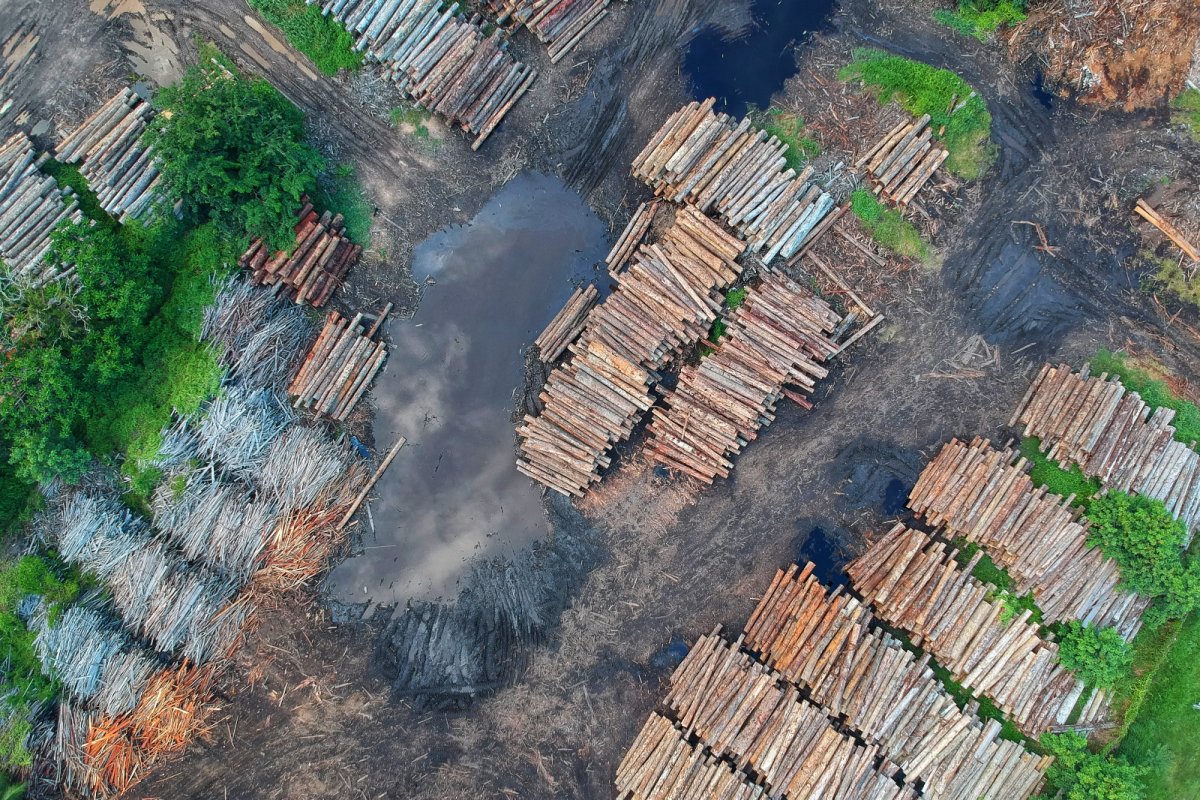 Industrial livestock farming is the single biggest threat to global biodiversity. Credit: Photo by Pok Rie from Pexels
Industrial livestock farming is the single biggest threat to global biodiversity. Credit: Photo by Pok Rie from Pexels

Why we need our councils to divest from industrial livestock
Our UK councils’ pension funds are pouring an estimated £238 million into industrial livestock companies. Sustain member Feedback invites you to join the newly launched divestment movement.
Industrial livestock companies are the food system’s biggest contributors to climate change, deforestation, human rights abuses, health risks and animal cruelty. Yet new research from Feedback and World Animal Protection reveals that UK councils have an estimated £238 million invested in industrial livestock companies, via their pension funds. These investments put the future security of pensions, people and planet under threat. That’s why we’d like you to join the growing movement for industrial livestock divestment – for local authorities to end their pension fund investments in these companies. Find out how much your council invests and call on your councillors to support divestment via our handy tool and check out our resources.
What’s wrong with industrial livestock?
Globally, industrial livestock companies are the largest producers of cheap, low-welfare, high-emitting meat and dairy, at precisely the time when we urgently need a just transition to ‘less and better’ meat:
- Climate change: The five biggest meat and dairy companies worldwide have been shown to collectively emit more greenhouse gases than oil and gas giant ExxonMobil, and if current growth trajectories continue, the global meat and dairy industry will be burning through almost half the world’s carbon budget by 2030.
- Land and deforestation: Livestock uses 83% of the world’s farmland, including 40% of the world’s cropland to grow animal feed, despite providing only 37% of our protein and 18% of our calories. This makes industrial livestock one of the biggest drivers of deforestation.
- Global justice: Industrial livestock primarily feeds the high-meat diets of rich countries in the Global North, using a hugely unfair share of the world’s carbon budget and agricultural land use whilst inflicting disproportionate harm on lower-income communities in the Global South through climate change, land grabs, air pollution and exploitative working conditions.
- Health: South African scientists recently warned that intensive livestock farming creates the “perfect breeding ground” for the development of new viruses. Over-use of antibiotics in industrial livestock also risks the development of antibiotic-resistant superbugs. 60% of UK particulate air pollution, which causes £8 billion a year in health damage, is from ammonia from farms – particularly from livestock manure.
- Animal cruelty: And finally, industrial livestock companies rely on intensive factory farming techniques to maintain their drive for growth and profit, resulting in animal cruelty at a mass scale.
Why divestment?
The industrial livestock sector is the latest front in the growing divestment movement in the wake of successful campaigning on fossil fuels. Six local government pension funds, over half of all UK Universities, and over 1,485 institutions globally representing over $39.2 trillion in assets have already committed to going fossil free, causing significant reputational damage to the fossil fuel industry, helping end a narrow focus on individual behaviour change, and opening up space for stricter regulation. We aim to build on the successes of this movement – and we’re already beginning to make headway. Feedback and other members of the international ‘Divest Factory Farming’ coalition successfully pressured the private arm of the Inter-American Development Bank, IDB Invest, to drop a controversial multi-million dollar loan to Brazilian Beef Giant Marfrig Global Foods in February 2022, amid concerns about the role that it could play in fuelling deforestation and land grabbing.
As of February 2021, 74% of the UK’s Councils have declared a climate emergency, but research by Sustain has found that only 13 out of 92 climate emergency plans included policies to tackle food emissions at the scale needed. For the majority of councils, their largest greenhouse gas emissions will come from their pension fund investments, so alongside improving food procurement practices, divestment from industrial livestock is a great place to start with reducing their carbon footprint and supporting a sustainable food system.
Local authorities can have an important impact through industrial livestock divestment – harming the reputation of industrial livestock companies, setting a precedent for tighter standards for the investment of public money (including government subsidies to industrial livestock), and helping pave the way for regulation of this damaging industry. Divestment by local authorities also has a potential domino effect by influencing bigger players like banks and other institutional investors – offering potential to materially impact industrial livestock companies by pushing down their share prices and increasing their cost of capital, as has occurred with fossil fuel divestment. Our Briefing for Councillors provides a handy guide on how to divest.
Divestment helps protect the stability of local authority pensions too. If industrial livestock numbers do continue to rise unabated, then climate change and pandemic risks will cause instability and shocks in the global economy. Conversely, if governments take the necessary action to decarbonise our food system, this will push down the value of industrial livestock investments. A recent study found that half of the world’s fossil fuel assets, worth $11 trillion, could become worthless by 2036. Industrial livestock is likely to face similar problems – for instance, the Netherlands has introduced a €25bn plan to reduce livestock numbers by around a third, and the Committee on Climate Change clearly state that all routes to the UK reaching net zero require 20-50% reductions in meat consumption, calling it “particularly important”.
In contrast, engagement with these companies is a doomed enterprise. Many local authority pension fund investments in industrial livestock are in the form of bonds – and bond-holders do not have any say over how the company is run. When it comes to shares, most industrial livestock companies are “closely held”, which means the majority of the company’s shares are owned by a few individuals, not publicly traded – so minority shareholders, even collectively, can have limited influence. Perhaps most importantly, industrial livestock companies show no sign of wanting to, or being capable of reform – and certainly not in the timescales needed to avert climate crisis. Since these corporations have so much invested in industrial livestock production – land, farm buildings, processing factories, institutional knowledge and other infrastructure – they have a huge structural imperative to defend the growth of their industry, just as with fossil fuel companies who do not want to risk “stranded assets”. Of the world’s 35 largest industrial livestock companies, only six have targets to reduce their “Scope 3” supply chain emissions (where the vast majority of livestock emissions occur) and they are all pushing for growth in production and exports, in conflict with these targets. DeSmog recently found that the livestock industry has been spending millions lobbying against the shift to lower-meat diets. Engagement is better targeted at retailers and caterers to change their procurement practices to source less and better meat.
Industrial livestock corporations are hardwired to push for more and worse meat. To fight for a sustainable future with less and better meat, we need to take on industrial livestock corporations, and divestment is a vital tool at our disposal.
Please join the movement for industrial livestock investment! Find out how much your council invests and call on your councillors to support divestment via our handy tool and check out our resources.
Food for the Planet: Helping local authorities to tackle the climate and nature emergency through food.
Sustain
The Green House
244-254 Cambridge Heath Road
London E2 9DA
020 3559 6777
sustain@sustainweb.org
Sustain advocates food and agriculture policies and practices that enhance the health and welfare of people and animals, improve the working and living environment, promote equity and enrich society and culture.
© Sustain 2026
Registered charity (no. 1018643)
Data privacy & cookies
Icons by Icons8







